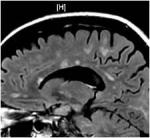 There is exciting news from last week’s 26th Congress of the European Committee for the Treatment and Research in Multiple Sclerosis (ECTRIMS) in Gothenburg, Sweden.
There is exciting news from last week’s 26th Congress of the European Committee for the Treatment and Research in Multiple Sclerosis (ECTRIMS) in Gothenburg, Sweden.
ALEMTUZUMAB. 5-year data from a Phase II extension study for alemtuzumab, an intravenously administered monoclonal antibody, showed that the drug:
- reduced annualized rate of relapse to 0.14 compared with 0.28 for interferon
- reduced the risk for sustained accumulation of disability in remitting relapsing multiple sclerosis by 87% compared to 62% with interferon.
This is a remarkable agent with excellent activity in MS. Adverse events included immune thrombocytopenic purpura, thyroiditis and anti-glomerular basement membrane disease.
TERIFLUNOMIDE. A Phase III trial of oral teriflunomide in remitting relapsing MS showed:
- a 31% reduction in relapse rate and increased time to first relapse compared with placebo
- reduced the risk of sustained disability progression by 29.8%.
Side effects were mild and included diarrhea, nausea, liver function abnormalities and hair loss.
Alemtuzumab and teriflunomide are currently in Phase III clinical trials at SNI.
SNI PRESENTATIONS:
- Dr. Jim Bowen presented a poster about ongoing demyelination and neurodegeneration in a patient who had undergone autologous stem cell transplantation.
- Drs. Jung Henson and Mayadev reviewed the beneficial effects of exercise on functional and quality of life outcomes from SNI’s MS wellness program






















